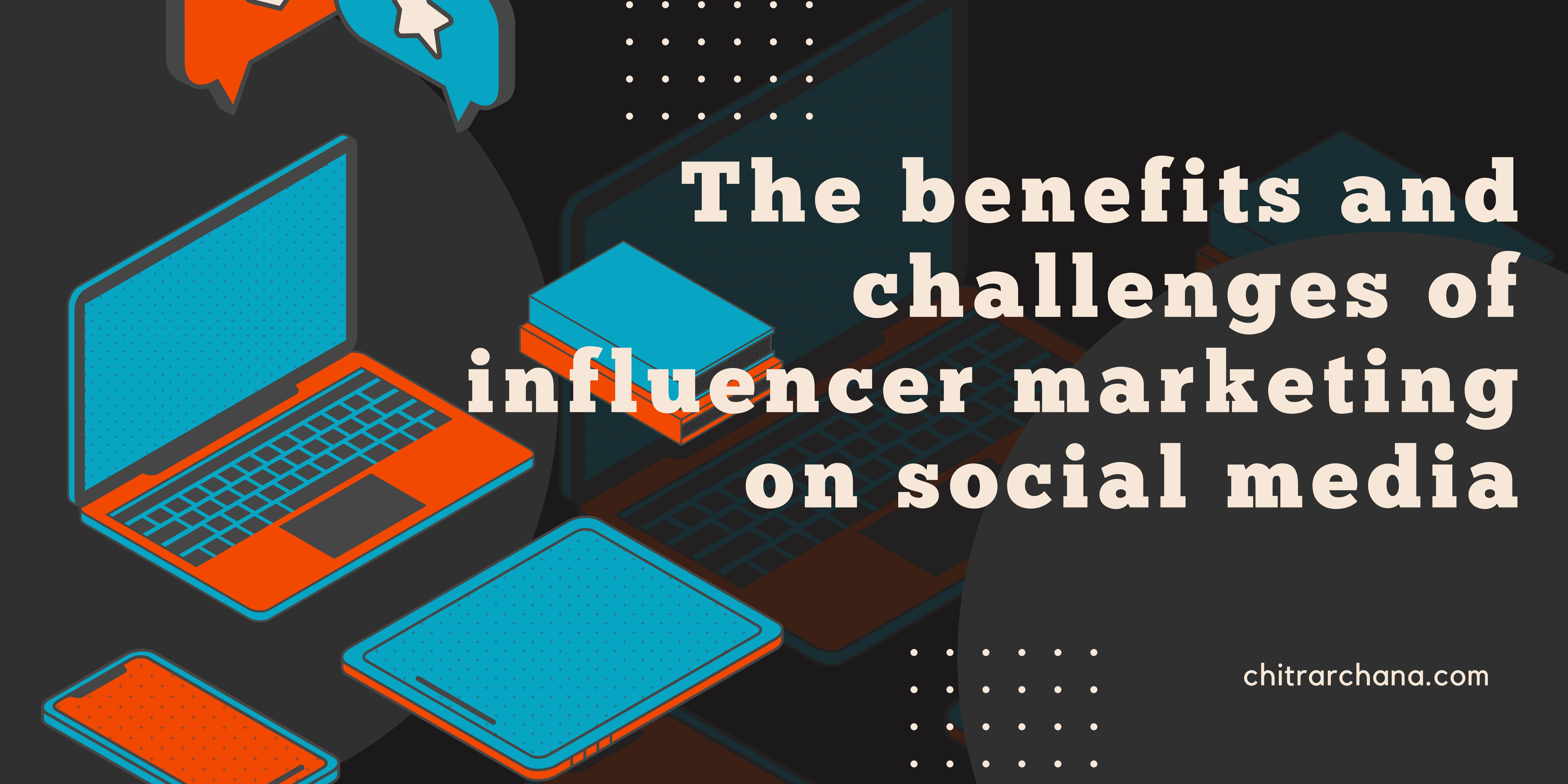
Influencer marketing has become a popular strategy for businesses and brands to reach their target audience on social media. It involves partnering with social media influencers who have a significant following to promote products or services to their followers. While influencer marketing has its benefits, it also comes with its challenges.
One of the primary benefits of influencer marketing is the ability to reach a large and engaged audience. Influencers have built up a following of people who trust their opinions and recommendations. This can help businesses reach a wider audience and potentially increase sales.
Influencers have built up their following by being authentic and relatable. When an influencer recommends a product, their followers are more likely to trust that recommendation because they trust the influencer. This can help businesses build trust with their target audience.
Influencer marketing can be a cost-effective way for businesses to promote their products or services. Instead of spending a large amount of money on traditional advertising, businesses can partner with influencers who have a large following and a highly engaged audience.
Influencer marketing allows businesses to target a specific audience. By partnering with an influencer who has a following that aligns with the business’s target audience, businesses can ensure that their message is reaching the right people.
While authenticity is a benefit of influencer marketing, it can also be a challenge. If an influencer promotes a product that they don’t actually use or believe in, it can damage their credibility with their followers. Businesses need to be careful to choose influencers who align with their brand values and beliefs.
Influencer marketing is subject to regulations from the Federal Trade Commission (FTC). Influencers must disclose when they are promoting a product or service in exchange for compensation. Businesses need to ensure that their influencer partners are following these regulations to avoid any legal issues.
Measuring the success of influencer marketing can be challenging. While metrics such as reach, engagement, and sales can be used to track the success of a campaign, it can be difficult to attribute those results solely to the influencer marketing campaign.
Not all influencers are created equal. It can be challenging for businesses to find the right influencer who aligns with their brand values and has a following that matches their target audience.
Influencer marketing on social media has its benefits and challenges. When done correctly, it can be a cost-effective way for businesses to reach their target audience and build trust with their customers. However, businesses need to be careful when choosing their influencer partners and ensure that they are following regulations and measuring the success of their campaigns.
Finding an influencer that aligns with your brand values and target audience can be a challenge. It’s essential to research and vet potential influencers thoroughly before partnering with them. You’ll want to consider their content, style, and audience demographics to ensure they’re a good fit for your brand.
While influencers have built their following based on their authenticity, some may prioritize sponsorships over their followers’ trust. It’s essential to work with influencers who genuinely care about their audience and will promote products or services that they believe in.
Social media algorithms are constantly evolving, which can impact the visibility of influencer content. As a result, businesses must adapt and adjust their influencer marketing strategies regularly. They may need to explore new platforms or adjust their content to align with platform algorithms.
If an influencer you partner with experiences negative press or controversy, it can reflect poorly on your brand. It’s crucial to conduct thorough research on potential influencers and keep track of any red flags or warning signs that could negatively impact your brand reputation.
Measuring the return on investment (ROI) of an influencer campaign can be challenging. While reach, engagement, and sales can provide valuable insights, it can be challenging to attribute those results solely to the influencer campaign. It’s essential to set clear goals and metrics before launching a campaign to accurately measure its success.
In summary, influencer marketing on social media can be an effective way for businesses to reach their target audience and build trust with customers. However, it also comes with its challenges, including finding the right influencer fit, ensuring authenticity, adapting to changing algorithms, managing potential negative press, and measuring ROI. By carefully researching and vetting potential influencers and setting clear goals and metrics, businesses can overcome these challenges and leverage the benefits of influencer marketing to their advantage.